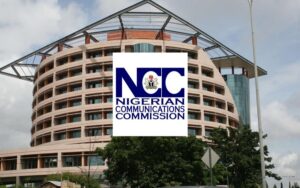2023 General Elections: The demands for intelligent participation
Questions of keeping eyes on the choice of candidates for the 2023 elections have been on the top burner. Living up to expectations of governance have brought into bear the need to have square pegs in square holes. The deficiencies in governance over the years have brought to the forefront, administrative incongruity which are counterproductive to development in the Country. As Nigerians have come to the heels of harsh conditions of bad governance, calls on citizens to open their eyes to the demands of the best choice of candidates, right for key positions have become a necessity before the citizenry.
The demand is one calling for making right decisions to bring on board the most credibly competent individuals to pilot the course of affairs in the Country for another political period. Offering perspectives on the choice before citizens, Elder States Man and the founder of the Citadel Global Community Church, Pastor Tunde Bakare has requested Nigerians to give informed consideration to the capacities of candidates of political parties, in choosing whom to vote for in the 2023 elections. Delivering a lecture at the 10th-anniversary of the Elizade University, Ilara Mokin, Ondo State, entitled: “The lecture was titled ‘Nigeria beyond 2023: the human capital paradox,” Bakare who identified human capital development as a catalyst to Nigeria’s development, said topmost on the Country’s list of criteria for leadership suitability must be the capacity of candidates at every level and arm of government to respond to the human capital deficit constraining Nigeria’s development.
He was quoted: “We have an opportunity as a nation to address the state of our public institutions and make this the decade of the Nigeria of our dreams, the decade of the new Nigeria. This is why, even as we approach a decisive juncture in our national development trajectory, namely the 2023 general-elections, topmost on our list of criteria for leadership suitability must be the capacity of candidates at every level and arm of government to respond to the human capital deficit constraining Nigeria’s development. Human capital development begins at the level of the individual and brings to the fore the skills, training, and experience of the individual. It is the idea that the individual’s investment in capacity building can bring economic returns to the individual in the short-to-long term. However, human capital as a national economic concept entails converging the individual capacities of a nation’s citizens towards the national interest. This is why the concept of human capital is closely linked to the theory of the social contract. For citizens to commit to deploying their individual earned capacities towards the national interest, there must be a highly compelling national vision. A compelling national vision will give our young people the best quality education; it will facilitate innovative solutions to Nigeria’s socio-economic challenges
“More than 90 million Nigerians experience multidimensional poverty making Nigeria second only to India. 33.8per cent of Nigerians are deprived of adequate nutrition, 45.5per cent lack access to fuel for food preparation and 36per cent are deprived of sanitation systems. 25.3per cent have no access to clean drinking water and 32.8per cent have no access to quality housing. About 10.5 million Nigerian children are out of school, the highest number in the world, 85 million Nigerians lack access to grid electricity.
“New Nigeria is a nation where no one goes to bed hungry and no child is left out of school without access to quality education, where our homes, schools, streets, villages, highways and cities are safe and secure. A new Nigeria where Nigerians can work, play or travel with their minds at rest, and go to bed with their hearts at peace, a Nigeria where our hospitals are life-saving institutions and every Nigerian has access to good quality healthcare, where no youth is unemployed and our young men and women are job creators. A Nigeria where businesses thrive on innovation and made-in-Nigeria can compete anywhere in the global market, where homes and businesses have access to clean and uninterrupted power supply and ideas are facilitated by functional infrastructure and cutting edge technology.”
The concept of the possibilities of a new Nigeria where Nigerians live under a humane condition of life with conducive palatable environment holds strong bearing, to a large degree, to the choice of the capacities of individuals which Nigerians elect as their representatives to run government affairs on their behalf. The backward movement of the Country over the years with the associated ills cannot be expunge from the choice of persons who have been elected to oversee the administration of governance over time. While accusing fingers have been pointed out to Military administrators who have in past ruled the Country, it is not sufficient and accurate enough to argue that the years of uninterrupted democracy in the subsisting fourth republic would not have had reforming effects. Against the expectations of many, it is only lamentable that situations under the prevailing civil rule, with elective principles of selecting leaders, have brought in worse narratives, the degree of which is largely irreconcilable with what the military left behind.
As Nigerians lament the worsening of the prevailing conditions, it is noteworthy that lamentations would not be enough to change the narratives, except they take, in course, the necessity to play critical roles intelligently as citizens, using their elective power to bring on board candidates of the best capacities, integrity and credibility for the various elective positions, ranging from the Executive to the Legislative structures at different levels. Arriving at such enlightened decisions of having such calibre of leaders with transformative power would not come easy. It demands citizens’ concerted efforts and keen concentration to study intensively the political climate. Of such is taking deep turn to active political interest and participation.




